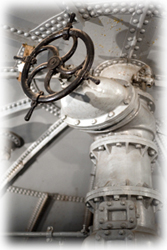How CFATS (Chemical Facility Anti-Terrorism Standards) May Affect Your Power Washing Business
The Department of Homeland Security developed its Chemical Facility Anti-Terrorism Standards know as CFATS to address the nation’s water supply. After the tragedy of September 11th, 2001, it seemed nothing was safe, not our buildings, not roads, not bridges and not even water. The DHS took a look at water sources and what dangers could possibly stem from their contamination and developed the following security issues: release; theft or diversion of sources; sabotage and contamination. CFATS department’s goal is to prevent certain chemicals from entering the water supply and to prevent our water sources from being hijacked.
Besides the obvious result of people becoming sick from contaminated water, the DHS has concerns about flammable or explosive substances being added to the water supply and then being used against us through chemical weapons and explosive devices.

The first target for Chemical Facility Anti-terrorism Standards department was of course, big industry and high risk facilities where chemicals are used or manufactured. Once they were able to secure these, they worked down to the smaller companies and they carry some big ammunition. Fines for non-compliance can be as high as $25,000 per day. Anti-terrorism department employs inspectors to check for non-compliance with the CFATS rules and the proliferation of the program is certain. It is a real concern for the certain small industrial power washing business owner whose entire livelihood could be crippled by just one day’s worth of fines.
CFATS department published a report of “Chemicals of Interest” in November 2007 which detailed particular chemicals. These COI are to be monitored by facilities and if they should exceed the allowable amount of each chemical, they must notify DHS using a form called a “top screen.”
After complying with the completion of the top screen form, Chemical Facility Anti-terrorism Standards department will evaluate the facility for possible risk. If determined to be a high risk, or covered, the facility will enter the next phase of investigation by Anti-terrorism department. The facility in question must submit a Security Vulnerability Assessment to Anti-terrorism department detaining the standards and practices of the company. They are also required to develop a Site Security Plan and submit that as well. If Chemical Facility Anti-terrorism Standards department approves your paperwork, you will be given a letter of Authorization to continue to operate, but be prepared to be further scrutinized by compliance.
The publisher of these pages is in no way responsible for any damage caused to you, your pressure washer, anyone else, your property, or anyone else's property by trying to implement or by successfully implementing the above-mentioned performance and services.


